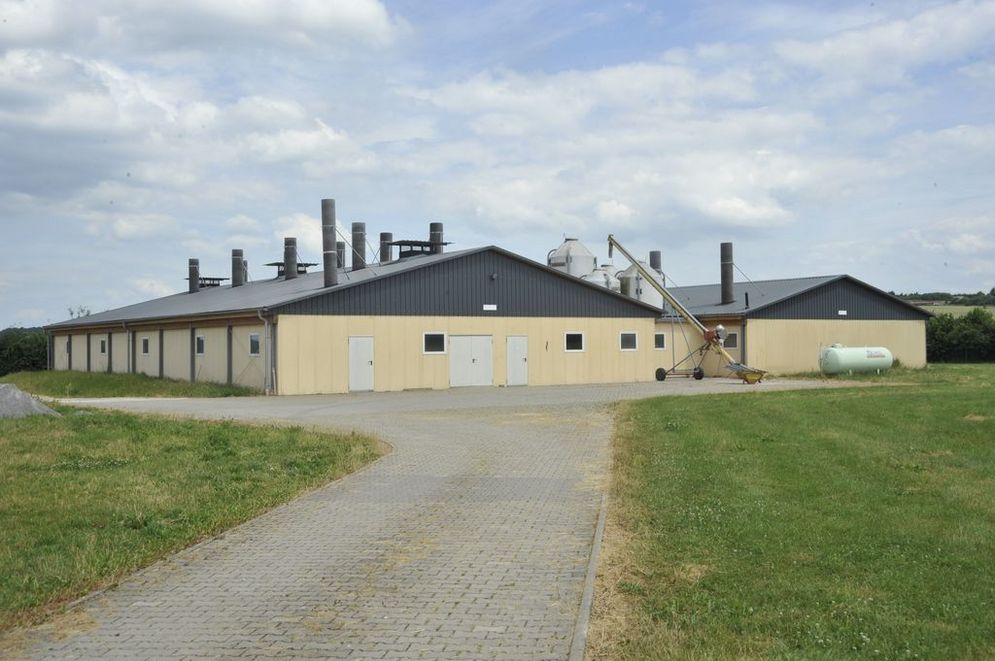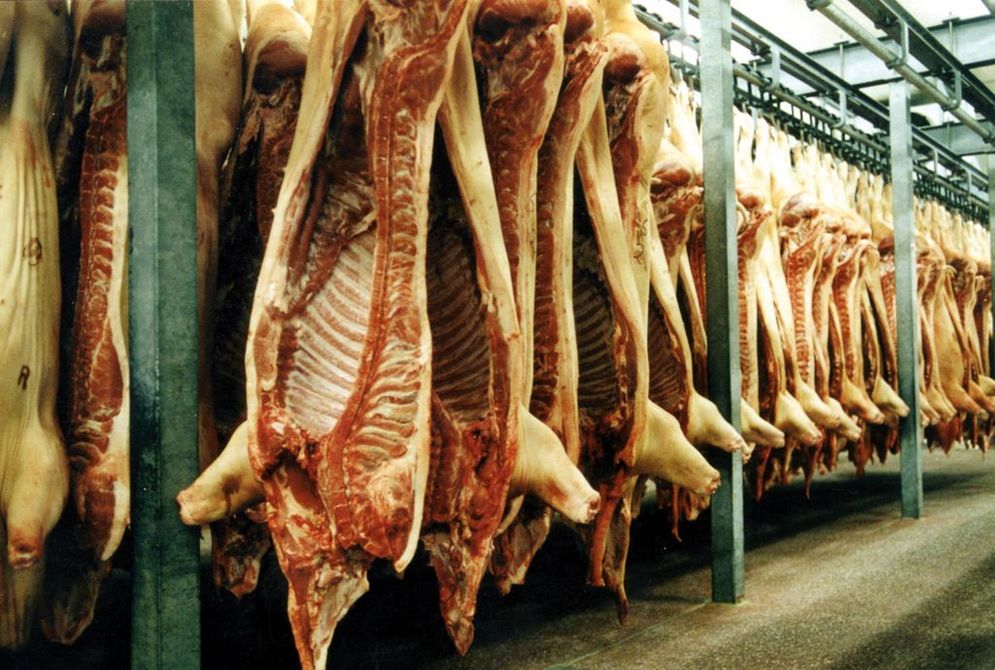Project
Economic development of regions with concentrated livestock production in accelerated structural change (ReTiKo)

Some German regions are characterized by specifically intensive livestock production. This production not only contributes to economic prosperity in these regions; it also causes massive environmental problems due to pollution of land, air and water.
Background and Objective
In the project ReTiKo the Thuenen-Institute analyses the economic consequences of a potential reduction of livestock in regions with concentrated livestock production. This reduction is considered inevitable by many experts if standards for the protection of land, air- and water are to be met again. Nevertheless, we do not yet know how strongly the local economy depends on livestock production, and how well it adapts to structural changes in the short, medium or long term.
Approach
In the quantitative part of the project, panel regressions are used to determine the relationships between the various industries and their employment developments between 2007 and 2019 separately for 16 case and 220 reference districts. The identified coefficients of the case and reference regimes are then used to simulate the potential development with and without a permanent halving of the agricultural sector for two further periods of 12 years each. A comparison of the scenarios shows the possible effects of a corresponding exogenous shock.
However, regional development cannot be predicted with certainty. In the qualitative part of the project, interviews were therefore conducted with regional experts and stakeholders on the various strategies for further development in and outside the value chain of the livestock and meat industry. These strategies influence the further development after a possible exogenous shock.
Data and Methods
The empirical analysis consists of a combined approach to quantitative and qualitative data:
(1) The combined effect of regional production structures and capabilities as well as of primary sector structural change on rural development is predominantly determined quantitatively. In these quantitative analyses, labour market data and other data from general regional statistics are applied as well as micro data on firms and employees.
These data are deployed for econometric analyses in order to identify model parameters and for the calibration and testing of the structural models.
(2) Reaction patterns, strategies and governance approaches are being analysed in comparative regional case studies based on qualitative data. Analyses are based on information from expert and stakeholder interviews as well as from historic and contemporary documents.
Information from expert interviews is used to determine the relationships between individual agents, firms, and industries of the regional value chain. Stakeholder interviews are utilised to identify key actors' strategies and to assess their individual and collective influence.
The approaches complement and mutually validate each other. Together, the qualitative and quantitative models create understanding of agents' decision making processes and strategies in their regional context. Based on this, potential paths of development are derived for the event of a change in the status quo. Models and scenarios will then be interpreted and discussed with regard to the specific regional circumstances.
Our Research Questions
ReTiKo addresses the following research questions:
(1) What is the significance of livestock production for the regional agriculture and food industries as well as for the wider economic environment and its development?
(2) What are the adaptation capabilities and response strategies of agents involved in the regional livestock production system and its upstream and downstream sectors?
(3) How do regional actors beyond the livestock-based value chains react towards changes in the agriculture and food industries and what are the consequences of these reactions for the overall economic development of livestock intensive regions?
Results
The results of this study enable the derivation of development scenarios for times of accelerated structural change and afterwards. If the economic situation remains stable, livestock densities in the case region can be reduced without having to forego further growth. The less the economic and political stakeholders of the livestock and meat industry cling to old objectives despite signals to the contrary, the more likely the transformation is to succeed. If regional production capacities can be maintained locally through diversification, the growth of other industries can largely compensate for the decline of the livestock and meat industry.
If diversification at the location does not succeed, the specific endogenous location advantages may be lost and development departs from the old growth regime. In many case districts, growth then slows down more strongly and the production sector, which is important for the development of rural regions, loses ground.
Diversification and compensatory growth, however, depend on stable economic development even in the best of cases. The apparently inevitable structural transformation of the case region should therefore, if possible, be accelerated in a positive economic phase.
Project Brief, DOI: 10.3220/PB1673260726000
Thünen-Contact

Involved Thünen-Partners
Funding Body
-
Federal Ministry of Food und Agriculture (BMEL)
(national, öffentlich)
Duration
6.2019 - 11.2022
More Information
Project funding number: 28N1800005
Project status:
finished
Publications to the project
- 0
Margarian A (2024) Analysing evolutionary growth regimes of regional economies and transformative shocks: Proposal for a regression-based counterfactual simulation approach to local inter-industry structural change. Structural Change Econ Dynam 70:18-32, DOI:10.1016/j.strueco.2024.01.003
- 1
Margarian A (2023) A regression-based simulation of local inter-industry structural change under capacity constraints and with transformative shocks [Preprint] [online]. Rochester: SSRN, 29 p, zu finden in <http://ssrn.com/abstract=4442000> [zitiert am 22.06.2023], DOI:10.2139/ssrn.4442000
- 2
Beck V, Efken J, Margarian A (2023) Regionalwirtschaftliche Auswirkungen einer Reduzierung der Tierhaltung in Konzentrationsgebieten : Abschlussbericht zum Projekt ReTiKo. Braunschweig: Johann Heinrich von Thünen-Institut, 218 p, Thünen Rep 110, DOI:10.3220/REP1685447890000
- 3
Margarian A, Beck V, Efken J (2023) Strukturwandel als Chance für die deutschen Veredlungsregionen. Agra Europe (Bonn) 64(25):22-23
- 4
Beck V, Efken J, Margarian A (2023) Transformation einer Veredlungsregion. Braunschweig: Thünen-Institut für Marktanalyse, 2 p, Project Brief Thünen Inst 2023/14, DOI:10.3220/PB1673260441000







